The Electronic Intifada 4 February 2020
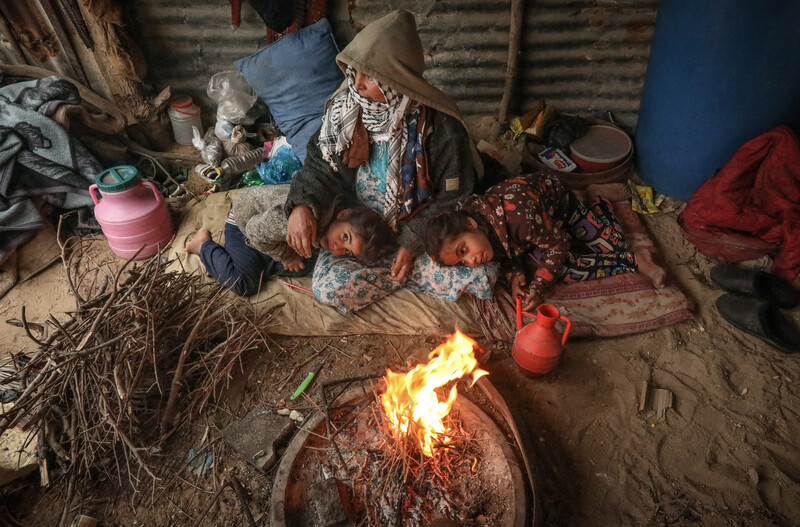
A Palestinian woman and her children sit in a shelter as a winter storm approaches in the al-Maghraqa neighborhood of Gaza City on 7 January. Thousands of residents of the area live in poor conditions in UN shelters and homes damaged in Israeli strikes.
ActiveStillsThree Palestinian teenagers from Gaza were shot and killed by Israeli forces in January, and two others died from injuries sustained during protests months earlier.
Amer al-Hajjar, 30, died on 19 January from his injuries after he was shot in the stomach during Great March of Return protests in 2018.
Alaa Hani al-Abbasi, 15, died on 31 January from injuries incurred during protests in October, when he was hit in the head by a tear gas bomb fired by Israeli soldiers.
Israeli forces have killed more than 210 Palestinians during those protests and wounded tens of thousands more.
Three Gaza teens killed
Israeli forces killed three Palestinian teenagers after they allegedly crossed the Gaza boundary and entered Israel on 21 January.
Israel claimed that the teens, whose ages reportedly range between 16 to 18, launched explosive devices at soldiers.
Israel is holding the teens’ bodies and has not formally notified their families of their deaths. In September last year, Israel’s high court approved using the remains of slain Palestinians as bargaining chips in future negotiations.
Elsewhere, a farmer was killed when what might have been Israeli ordnance exploded on his land east of Rafah in southern Gaza on 18 January. Another farmer was seriously injured in a separate explosion on farmland east of Rafah, the health ministry in Gaza reported.
Media outlets stated that the explosions were likely caused by ordnance dropped by Israeli soldiers during incursions into Gaza’s perimeter area.
Also during the month, Israel carried out airstrikes after Palestinians in Gaza, which has been under a severely tightened blockade since 2007, launched balloons carrying explosive devices and rockets towards southern Israel.
The balloons and rockets caused no direct damage or injuries. A newborn baby in Sderot, southern Israel, was hospitalized for moderate head injuries after her mother fell while rushing to a bomb shelter as rocket sirens sounded.
Herbicide warfare
Meanwhile, Israeli planes sprayed herbicide into Gaza over three consecutive days in January, destroying crops along the eastern perimeter of the territory. Farmers were given no notice that would allow them to protect their crops as Israel, which cites security purposes, resumed the practice for the first time since 2018.
Israel sprayed herbicide into Gaza on 30 occasions between 2014 and 2018. The spraying affected farms hundreds of meters away from the boundary, harming Gaza’s agricultural production and likely exposing its population to carcinogens.
In the West Bank, and as of 20 January, Israel has demolished or seized 35 Palestinian-owned structures, including 10 that were funded by foreign donors.
On New Year’s Day, Israeli forces also uprooted 147 olive trees belonging to eight Palestinian families in the Bethlehem area.
“According to the Israeli authorities, the trees, which were 25 to 30 years old, were located in an area designated as state land,’” the UN monitoring group OCHA wrote in one of its biweekly reports on human rights violations in the West Bank and Gaza Strip.
“One of the affected families reported that an objection they had filed with the Israeli Civil Administration against the uprooting is still pending.”
On 29 January, the Trump administration in Washington unveiled its Middle East peace plan, which human rights groups say amounts to a permanent state of military occupation and apartheid.

Palestinians enjoy a ride in an amusement park suspension railway dubbed the “Train of Return” in Khan Younis, southern Gaza, on 2 January.
APA images
Demonstrators in Amman protest against Jordan’s natural gas deal with Israel on 3 January. Israel began pumping gas to Jordan, amid staunch opposition in the Arab country, at the beginning of the year.
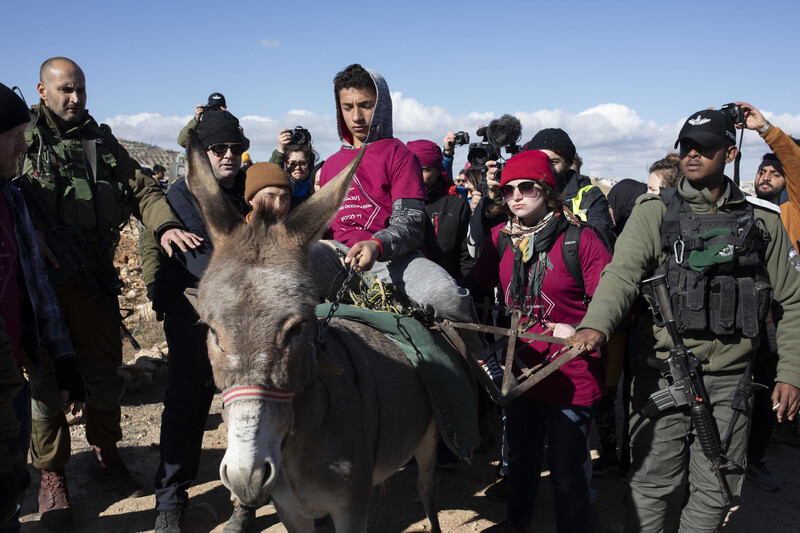
On 3 January, for the first time in 15 years, Palestinians were able to access and draw water from the Ein al-Beida natural spring near Avigayil settlement in the South Hebron Hills, accompanied by hundreds of Israelis and Jews from around the world. The proximity of the spring to the illegal settlement outpost, established in 2001 and expanded three years later, has meant that Palestinians have been barred from accessing or utilizing the spring. “After they lost access to the spring, local Palestinians were forced to purchase water from tankers that came to the area, at a multiple of the price paid by settlers whose water is provided by Israel’s largest water company, Mekorot,” +972 Magazine reported.
ActiveStills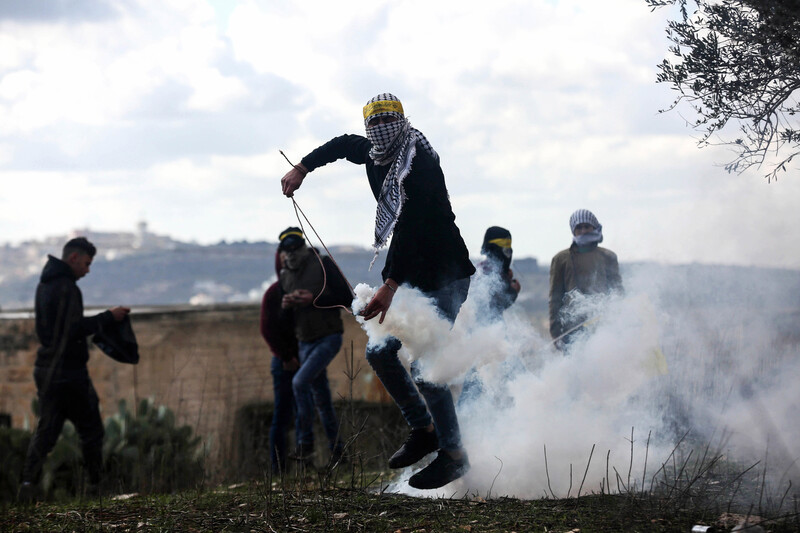
A Palestinian protester returns a tear gas canister fired by Israeli soldiers during confrontations following the weekly demonstration against land expropriation in the village of Kafr Qaddum, near the West Bank city of Nablus, on 3 January.
APA images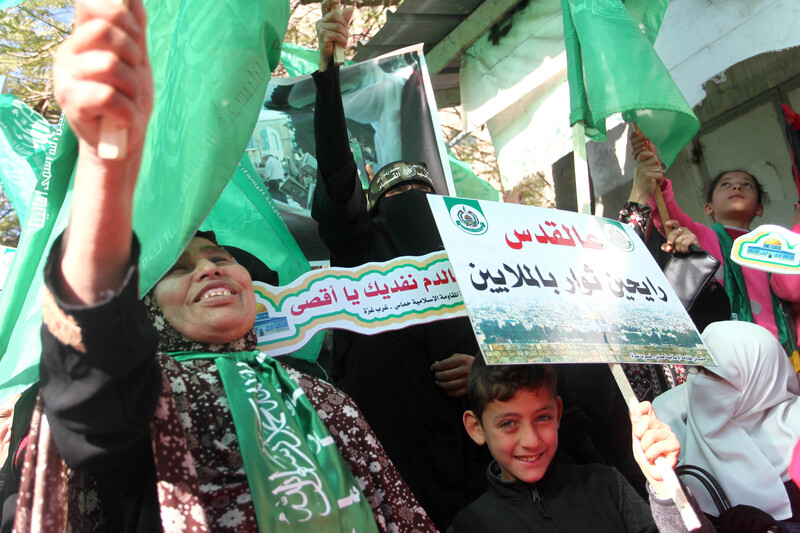
Hamas supporters in Gaza City take part in a protest to show solidarity with al-Aqsa mosque and Jerusalem on 3 January.
APA images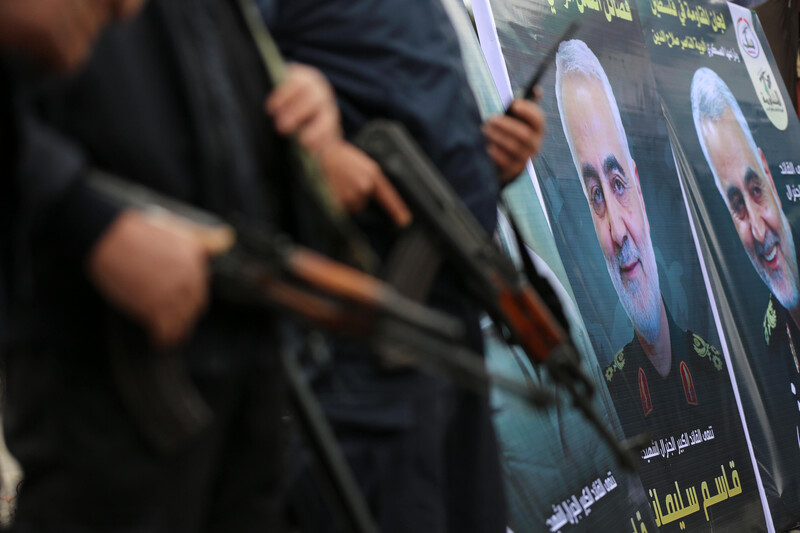
Palestinians in Gaza City mourn Qasem Soleimani, the Iranian general assassinated in a US drone strike in Baghdad ordered by President Donald Trump, 4 January.
APA images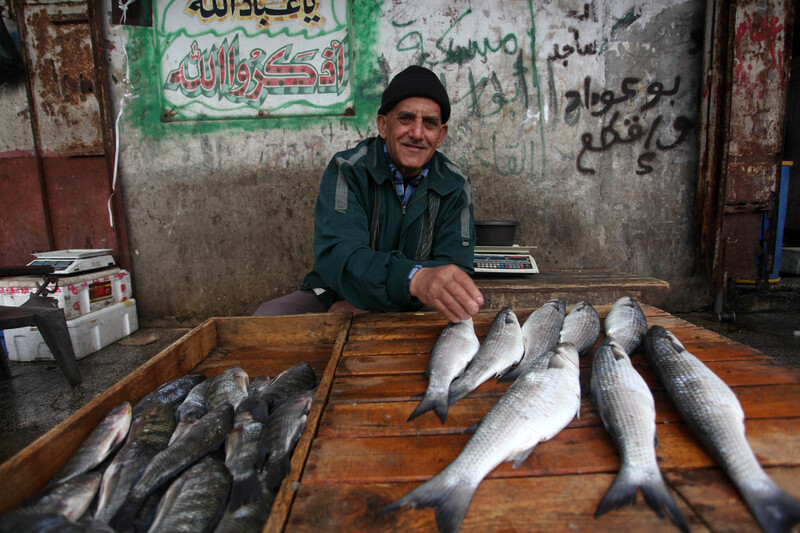
A Palestinian vendor sells fish at a Gaza City market on 4 January.
APA images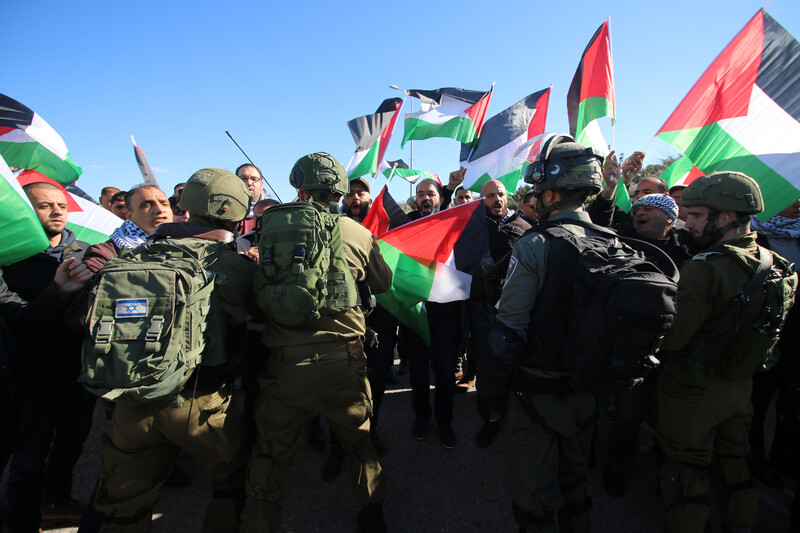
Palestinians protest against settlement expansion in an-Nabi Elia village near the West Bank town of Qalqilya on 2 January.
ActiveStills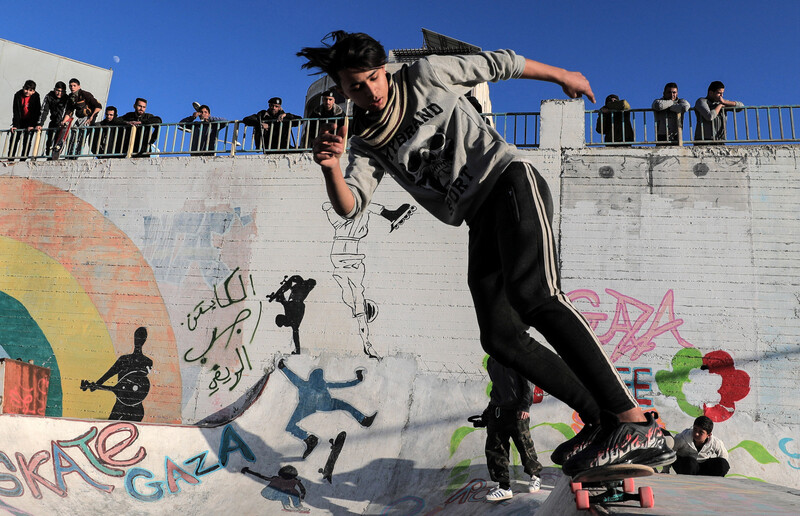
Palestinians ride skateboards in Gaza City on 6 January.
APA images
Greek Orthodox Archbishop Alexios holds Orthodox Christmas mass at the Saint Porfirios church in Gaza City on 7 January.
APA images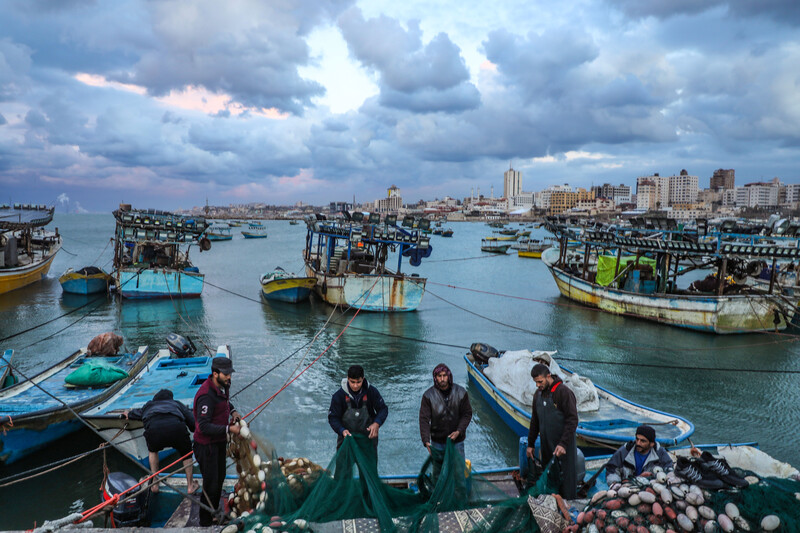
Palestinian fishers in Gaza prepare to sail on the first calm day after heavy winter rains struck the Strip, 9 January.
ActiveStills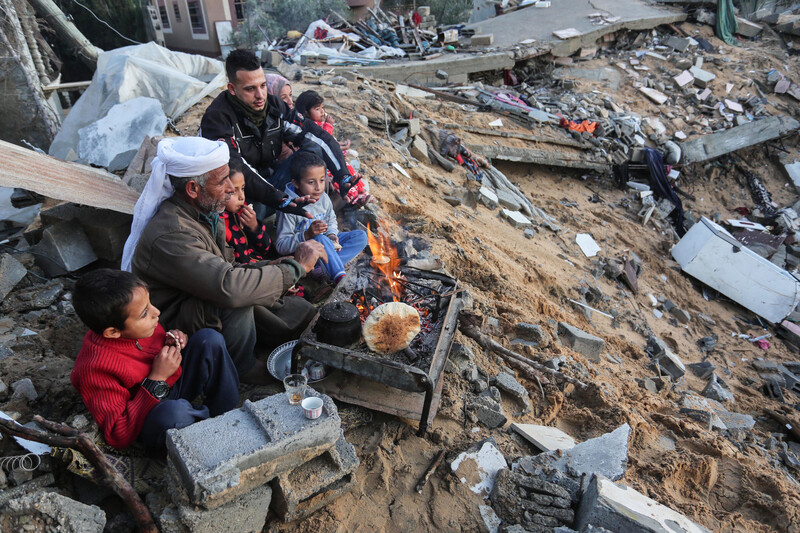
Members of a Palestinian family grill bread outside their destroyed home on a cold winter day in Khan Younis, southern Gaza, on 10 January.
APA images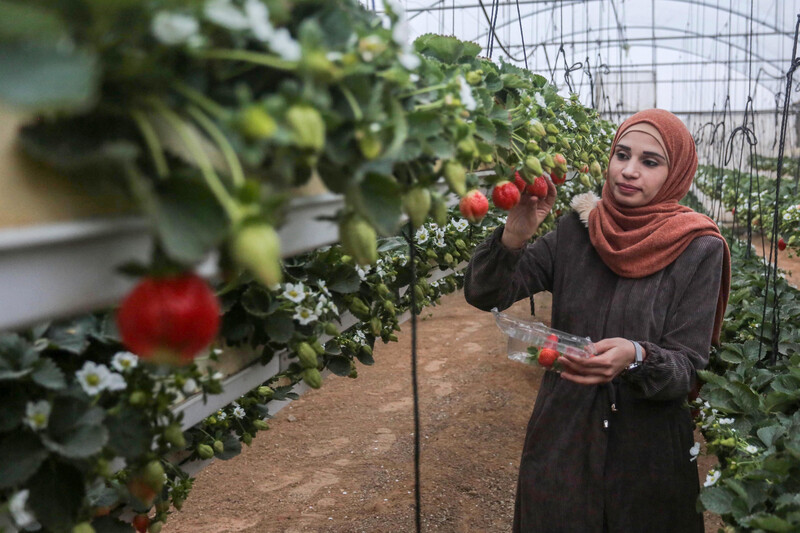
Haneen Abu Daqqa inspects strawberry plants at a greenhouse in Khan Younis, southern Gaza Strip, on 15 January. The harvest of the fruit marks the first successful cultivation of hanging strawberries in the southern Gaza Strip.
APA images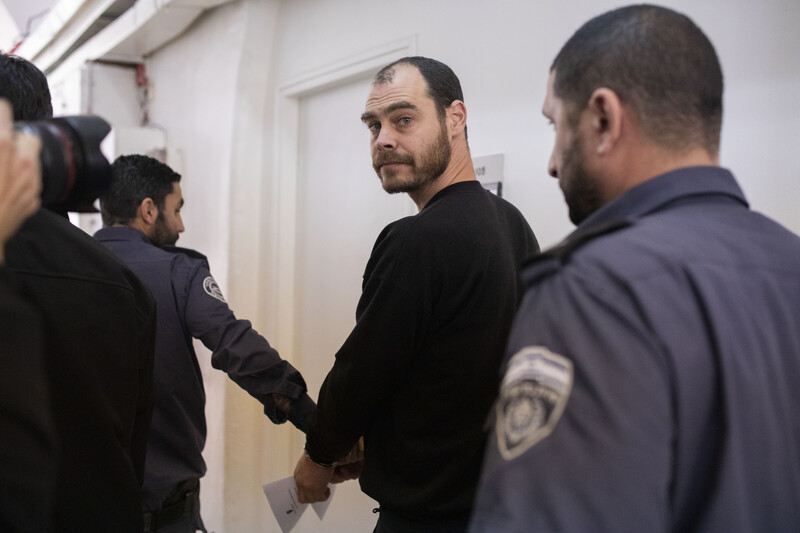
On 20 January the Jerusalem Magistrate court extended the detention of anti-occupation activist Jonathan Pollak, who was arrested 10 days earlier, after refusing to appear in court over a private prosecution filed against him by the extreme-right group Ad Kan. Pollak refuses to recognize the legitimacy of a system that maintains a “military dictatorship” over “subjects that lack all basic democratic rights” in the West Bank and Gaza or are “second-class citizens” in Israel.
ActiveStills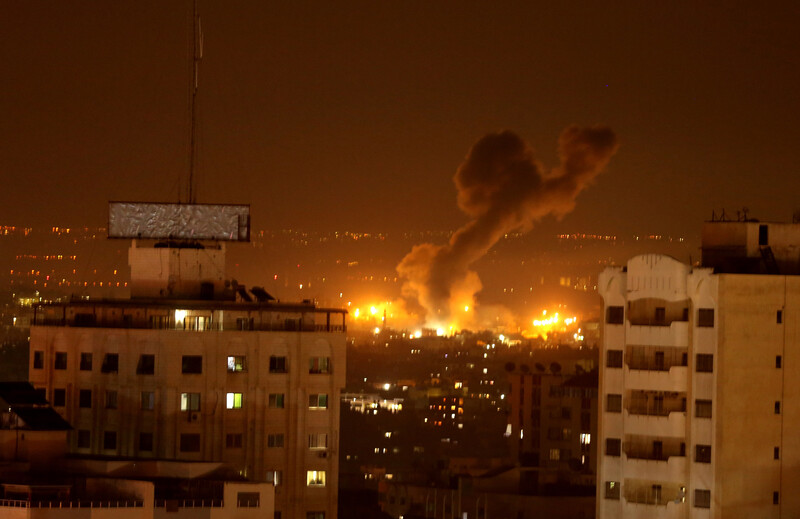
Smoke rises following an Israeli airstrike in the northern Gaza Strip on 15 January.
APA images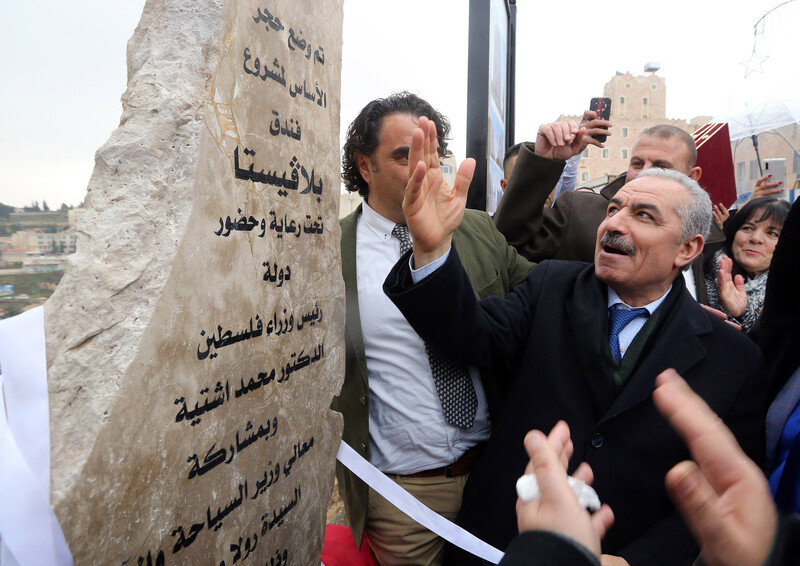
Appointed Palestinian Authority Prime Minister Mohammad Shtayyeh lays the foundation stone for four hotels in the West Bank city of Bethlehem on 18 January.
Prime Minister’s office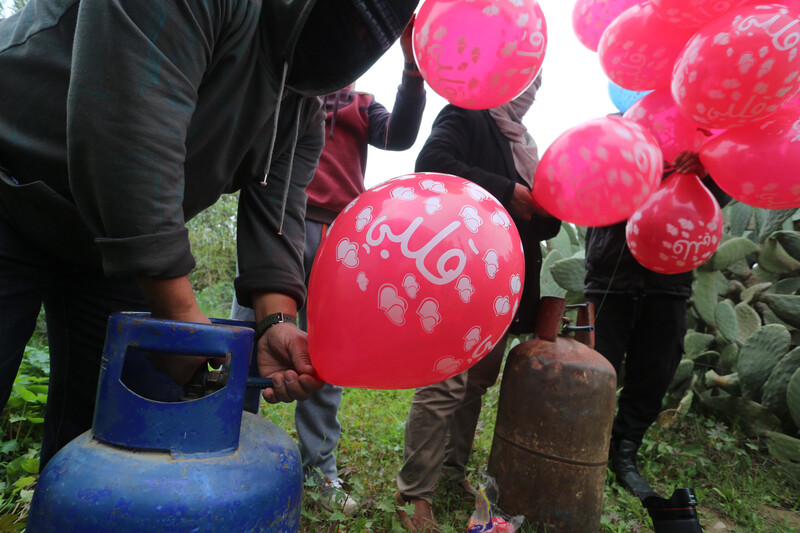
Palestinians inflate balloons with flammable materials attached to be sent towards Israel, Khan Younis, southern Gaza Strip, 18 January.
APA images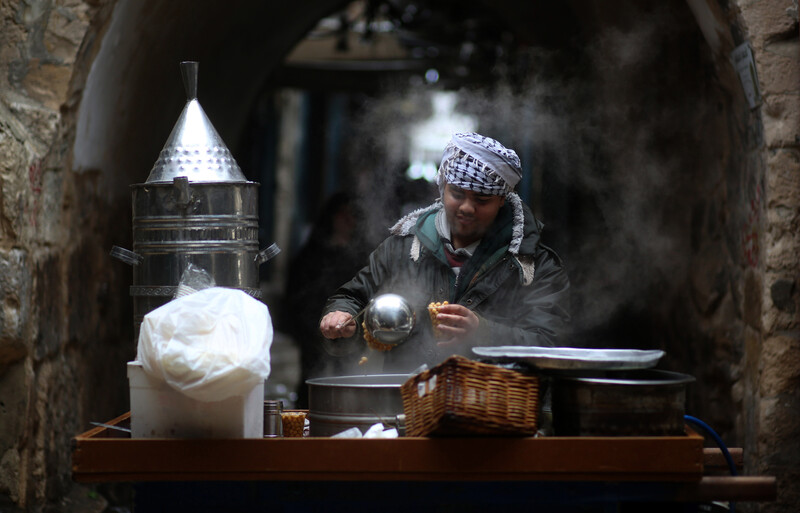
A street vendor in the West Bank city of Nablus prepares a snack on a rainy day, 19 January.
APA images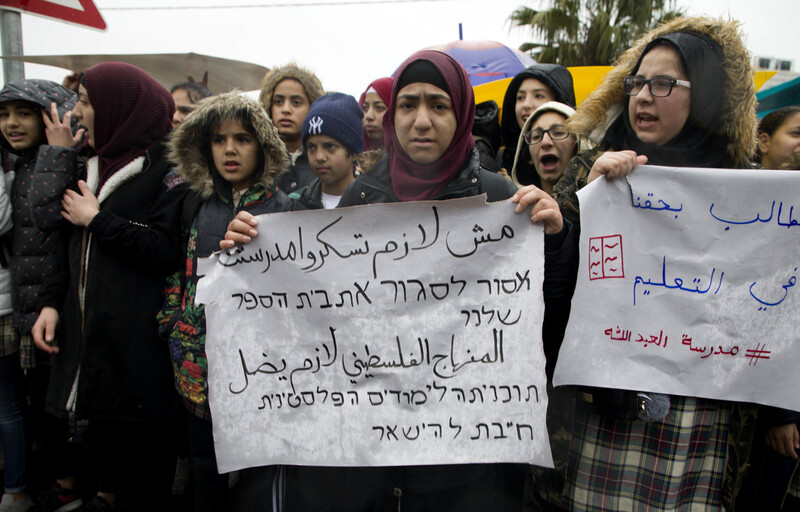
Palestinian students protest against the decision to impose the Israeli curriculum on their schools in the Sheikh Jarrah neighborhood of occupied East Jerusalem on 20 January.
APA images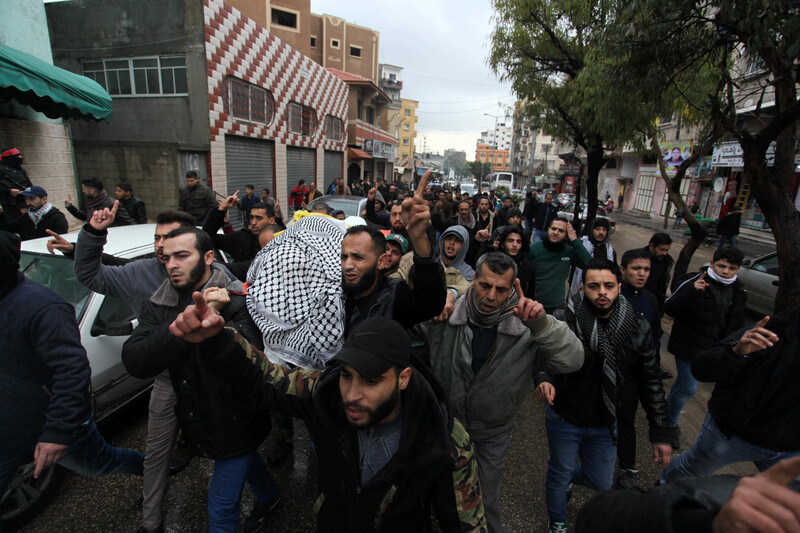
Mourners in Gaza City carry the body of Amer al-Hajjar who died on 19 January as a result of injuries sustained in 2018 during Great March of Return protests.
APA images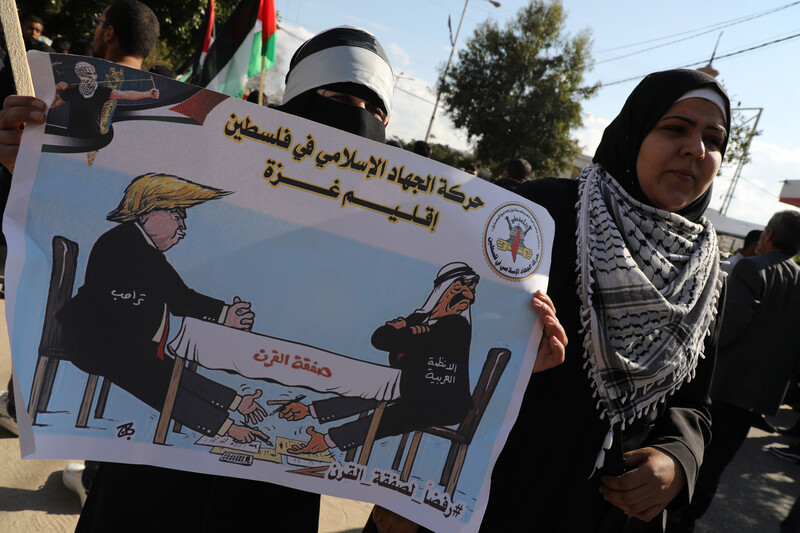
Palestinians in Gaza protest against US President Donald Trump’s Middle East plan on 28 January.
ActiveStills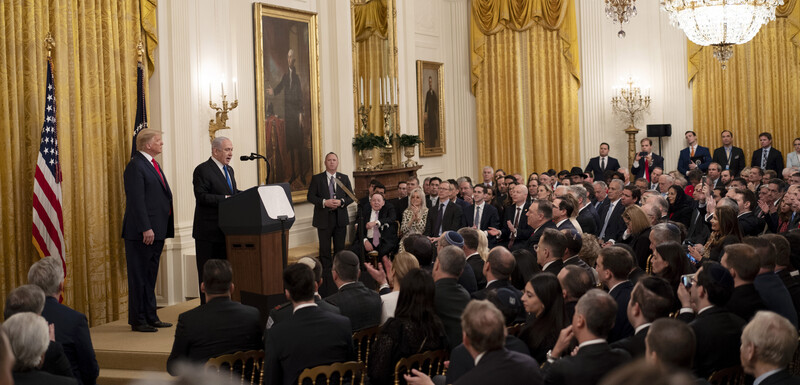
Israeli Prime Minister Benjamin Netanyahu speaks after US President Donald Trump unveiled his peace plan in Washington on 28 January.
Xinhua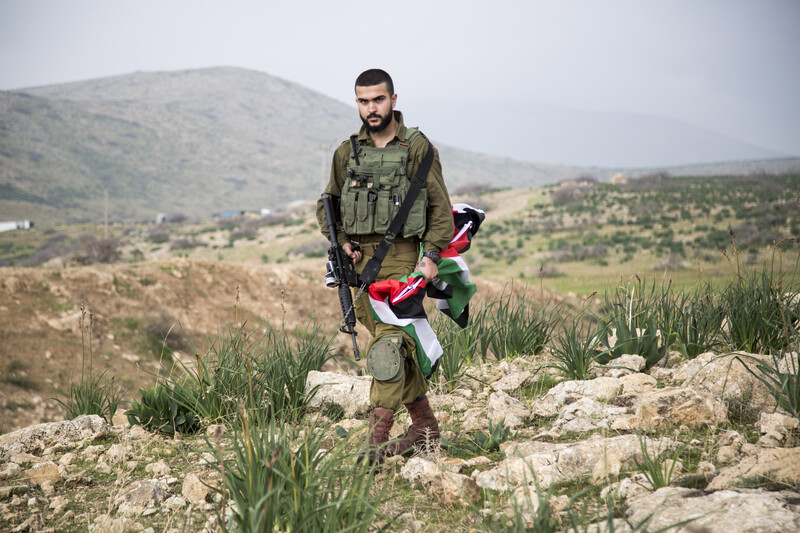
An Israeli soldier confiscates a Palestinian flag during a protest in the northern Jordan Valley against Trump’s plan that would see the annexation of large swaths of the West Bank to Israel, 29 January.
ActiveStills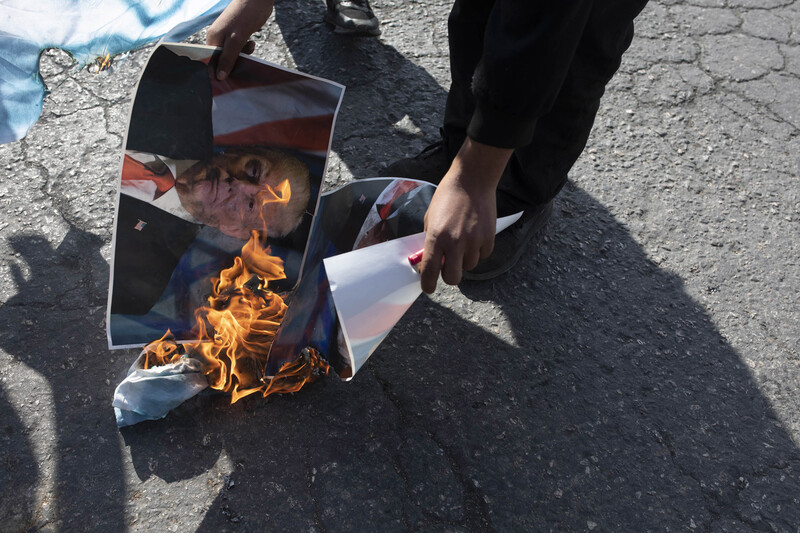
Palestinians protest against Trump’s newly announced Middle East plan at the DCO/Beit El checkpoint near the West Bank city of Ramallah on 30 January. The Israeli military used a drone to drop tear gas canisters on protesters during the demonstration.
ActiveStills

